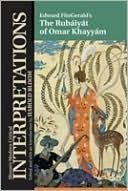Veiling the Mystic in the Hedonist’s Gear: A Comparative Rereading of Omar Khayyam’s The Rubaiyat and Harivansh Rai Bachchan’s Madhuśālā. Prasun Banerjee.
The Contour, 1 (2015) 4 (April), pp. 14-21.
Despite the conspicuous mystic perspectives, the recognition of the Rubaiyat to the Western literary discourse has essentially been as a hedonist poem celebrating the paganistic wine-intoxicated revelry and joys of earthly life and that of Omar Khayyam as the poet of the sharab (wine), saki (wine-girl) and peyala(wine-pot). But a careful scrutiny of the Persian and oriental tradition of poetry would reveal that the Rubaiyat is fraught with poetic devices that indicate at established Sufistic discourses in Khayyam’s verses, almost akin to the poets like Rumi, Hafeez or Ferdowsi.
